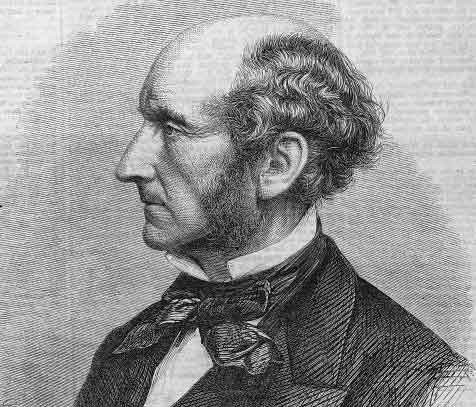
 Over the past decade or so, talks of the legalization of marijuana have become increasingly prevalent ever since Alaska became the first state to legalize medical marijuana in 1998. There are now 23 states, along with the District of Columbia, that have legalized the use of medical marijuana, and also four states that have legalized the recreational use of marijuana. Voters in the District of Columbia have also initiated the legalization of recreational marijuana use. The argument for marijuana legalization has remained relatively persistent: that there are no real long term effects (which research has shown to be somewhat inconclusive), that a regulated, legal marijuana industry would bring in billions in tax revenues like the alcohol and tobacco industries do, that drug-violence would decrease, that law enforcers’ time and U.S. tax dollars would no longer be wasted on the enforcement of anti-marijuana laws and imprisonment of offenders,and that it is one’s personal choice to use marijuana and does not affect anyone but the user.
Over the past decade or so, talks of the legalization of marijuana have become increasingly prevalent ever since Alaska became the first state to legalize medical marijuana in 1998. There are now 23 states, along with the District of Columbia, that have legalized the use of medical marijuana, and also four states that have legalized the recreational use of marijuana. Voters in the District of Columbia have also initiated the legalization of recreational marijuana use. The argument for marijuana legalization has remained relatively persistent: that there are no real long term effects (which research has shown to be somewhat inconclusive), that a regulated, legal marijuana industry would bring in billions in tax revenues like the alcohol and tobacco industries do, that drug-violence would decrease, that law enforcers’ time and U.S. tax dollars would no longer be wasted on the enforcement of anti-marijuana laws and imprisonment of offenders,and that it is one’s personal choice to use marijuana and does not affect anyone but the user.
This last reason immediately brings to mind John Stuart Mill’s On Liberty. One of Mill’s main points, and possibly his most well-known, is coined as the harm principle. Mill is a very strong supporter of free speech and personal liberties, and states that “the only purpose for which power can be rightfully exercised over any member of a civilized community, against his will, is to prevent harm to others” and that “His own good, either physical or moral, is not a sufficient warrant”. Mill is extremely clear here: the state is justified to restrict liberties only when there is a direct harm to someone else allowing us to dismiss the claim, whether true or untrue, that the use of marijuana is bad for you . This leads me to believe that Mill would indeed support legislation to legalize Marijuana because Mill says that the state is not justified in restricting a liberty where the restriction of the liberty causes more harm than if the liberty is permitted.
Objectors could claim that marijuana dependence could cause emotional harm to friends and family members of the user, or that the harming of someone in a car accident could be attributed to the other driver being under the influence of marijuana, along with other less convincing claims. We can immediately eliminate the example of a car accident, because in states like Colorado where marijuana is completely legal there are laws against driving under the influence of the drug. Let’s pretend for a minute that this is not the case: even without this law, there is not sufficient evidence that the legalization of marijuana has
 caused a higher occurrence of driving fatalities even with a higher percentage of the population with the drug in their system. In respect to the emotional harm claim, this could be argued in almost any situation no matter how ridiculous it may seem. For example, people experience a great deal of emotional harm when they go through a breakup, but does this mean that the state is justified to restrict the liberty of breaking up with your boyfriend/girlfriend? I don’t think so, and I don’t think Mill does either because it is utterly impractical. This brings us back to the reasons why Marijuana should be legalized, which are ultimately the greater harms caused by anti-marijuana laws: we are missing out on economic opportunity, the illegal trafficking of the drug does nothing but promote violence and gang warfare, and countless resources are being used to enforce laws against marijuana.
caused a higher occurrence of driving fatalities even with a higher percentage of the population with the drug in their system. In respect to the emotional harm claim, this could be argued in almost any situation no matter how ridiculous it may seem. For example, people experience a great deal of emotional harm when they go through a breakup, but does this mean that the state is justified to restrict the liberty of breaking up with your boyfriend/girlfriend? I don’t think so, and I don’t think Mill does either because it is utterly impractical. This brings us back to the reasons why Marijuana should be legalized, which are ultimately the greater harms caused by anti-marijuana laws: we are missing out on economic opportunity, the illegal trafficking of the drug does nothing but promote violence and gang warfare, and countless resources are being used to enforce laws against marijuana.
Mill would surely agree that these benefits to society far outweigh the harms caused by the drug, making the prohibition of marijuana foolish and impractical. Perhaps we should listen to the acclaimed philosopher. Perhaps we already are, as the issue becomes more pertinent and an increasing number of states pass laws allowing medicinal or recreational marijuana use. Still, this issue is more complex than the math-like explanation of greater harms minus lesser harms equals legalization, and is far from decided. If we are to truly act in the spirit of Mill, we must boldly embrace our free speech and continue this debate: “If all mankind minus one, were of one opinion, and only one person were of the contrary opinion, mankind would be no more justified in silencing that one person, than he, if he had the power, would be justified in silencing mankind” – John Stuart Mill, On Liberty.
I really liked this blog. You took Mill’s ideas and put them to use involving something with major controversy in todays day. I liked how you used some of his main points, and backed them up with counter arguments such as driving under the influence and other things associated with that. Another thing I liked was when you showed all of the positives that would come out of legalizing marijuana, which Mill would be certainly ok with after seeing how much bad things it could prevent and also how many jobs it would be able to open. While this is still a very much debated topic, I think you have a good point here when relating it to Mill’s theories and what he would have wanted.
LikeLike